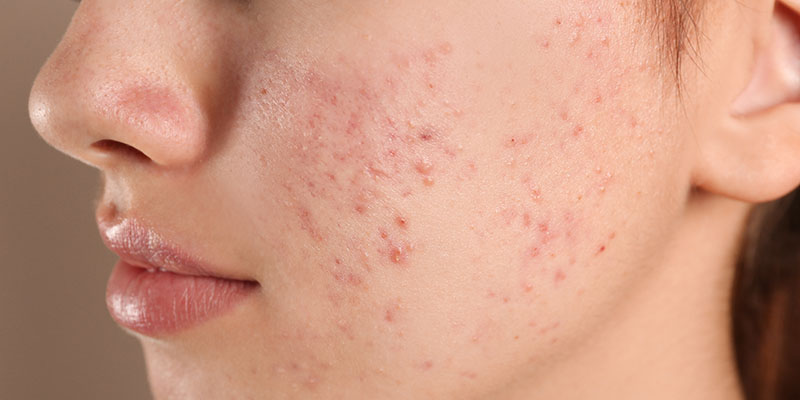

Leave a message

Whether you’ve been trying to self-treat teenage acne or are still battling acne as an adult, you’re probably frustrated with how ineffective your efforts have been. Acne is a skin disease triggered by many factors, including the balance of hormones in your body.
Acne arises when your body produces excess hormones, such as testosterone. That’s why acne is common during years associated with hormonal changes, such as puberty.
Androgens produce sebum, which is a waxy substance that protects your skin. When there’s too much sebum in your follicles, the follicles can’t shed dead skin cells. Instead, the excess sebum and dead cells form clumps that erupt into lesions such as blackheads and whiteheads.
The bacteria that live on your skin can get trapped in these follicles, too.
This can cause your skin to erupt into red, inflamed lesions such as pimples and cysts.
The most important way to treat your acne is by keeping your hands off your lesions. That means no squeezing, scrubbing, or washing your face more than twice a day. You can damage your skin if you handle it too roughly, and you won’t cure your acne, either.
Because acne has many causes, over-the-counter treatments aren’t usually enough to keep your skin clear. If you have a mild case of acne, look for ingredients that dry up excess oil or help your skin shed dead cells, such as:
Dr Matilda bases your acne treatment on the underlying causes in your particular case. Therapies may include:
Clear skin starts with an acne consultation with Dr Matilda Mphahlele. Book an appointment online today.